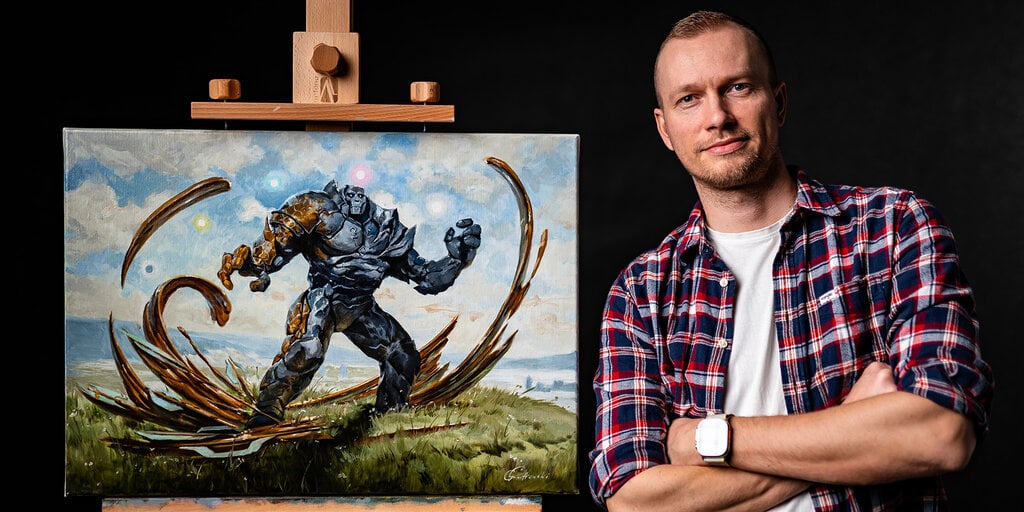Greg Rutkowski, a digital artist known for his surreal style, opposes AI art but his name and style have been frequently used by AI art generators without his consent. In response, Stable Diffusion removed his work from their dataset in version 2.0. However, the community has now created a tool to emulate Rutkowski’s style against his wishes using a LoRA model. While some argue this is unethical, others justify it since Rutkowski’s art has already been widely used in Stable Diffusion 1.5. The debate highlights the blurry line between innovation and infringement in the emerging field of AI art.



You just contradicted yourself in two sentences. Copyright and theft are not the same thing. They are unrelated to each other. When you violate copyright you are not “stealing” anything. This art is not “stolen”, full stop.
deleted by creator
Copying art for personal, non-commercial use is not theft, but copying someone’s art and then profiting (using their image without permission to enrich yourself) is theft.
No.
That’s your opinion. The contrary opinion would be that copyright infringement is the theft of intellectual property, which many people view as of equal substantiality to physical property.
You can disagree with the concept of intellectual property but clearly there’s an alternative to your point of view that you can’t just dismiss by declaration.
Take your opinion to a court of law and see how far it gets. They actually pay close attention to what words mean there. If copyright violation was theft why do they have two different sets of laws to deal with them?
I’m sure you’re aware that the manner in which legal bureaucracies define terms is a form of jargon that differentiates legal language from actual language.
They have separate categories of laws to deal with them because physical property is different than intellectual property. The same reason they use a different category of law to deal with identity theft.
Breaking Copyright is a contract/license violation, not theft. Depending on where you live, breach of contract is handled very differently than theft in most jurisdictions.
“Is copyright infringement theft” is something that had been debated for as long as mp3s were a thing. This is an old argument with lots of material on both sides scattered across the web. I clearly fall on the side of copyright infringement is theft and theft is stealing.
There’s absolutely no debate, legal or otherwise.
Theft, by definition, requires you to deprive someone of something. That simply cannot happen when you copy stuff. That’s why it’s called copyright infringement and not theft.
You can only steal art by physically stealing an art piece - then and only then it’s theft.
😀 just want to note theres a call out to this debate in the Wikipedia page on copyright infringement. I promise I didn’t add that paragraph there. https://en.wikipedia.org/wiki/Copyright_infringement
What do you mean there is no debate? You’re debating it right now.
Plenty of artists view it as theft when people take their work and use it for their own ends without their permission. Not everyone, sure. But it’s a bit odd to state so emphatically that there is no debate.